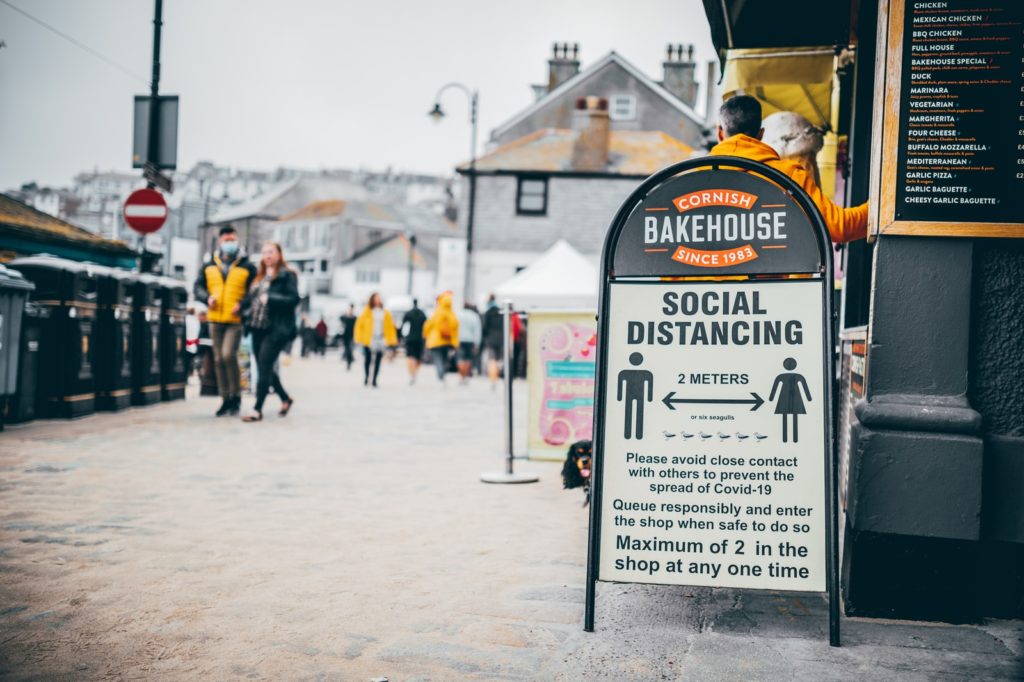Moving to the UK: Essentials Tips For Living in the UK
Keen on moving to the UK?
In this tell-all guide, your cosmopolitan chums Homelike have covered it all. We’ve brought you information on how to move to the UK, the pros and cons of living in the UK, and endless facts and figures on pets, prices, visas, jobs, education and more.
Whatever you want to know about living in the UK, you’ll find it here. Read on, you globetrotting icon!
1- Why Move to the UK?
The UK is a massively popular choice for a relocation.
In 2019, nearly 10 million born-abroad people were living in the region—and almost 600,000 foreigners moved to the UK in 2019 alone.
Foreigners flock to the place for all sorts of reasons, which we’ve discussed throughout this guide. But in short, it’s a brilliant place to live, with lots of lovely perks, and millions of reasons to fall in love. Coming up, we’ve brought you the pros and cons of living in the UK, to prove just how great of a place it can be…
(Spoiler alert: as you probably could have worked out for yourself, most of them are pros).

2- Pros and Cons of Living in the UK
Pros of living in the UK:
- Very high quality of life: overall, the UK’s quality of life is fantastic. One of the most developed nations on the planet, all public services are brilliant, and the place ranks very well in terms of health, safety, security and wellbeing.
- The NHS: the UK is home to the National Health Service (or NHS for short), a taxpayer-funded healthcare system that essentially makes health services free of charge. It’s genuinely one of the best healthcare systems in the world.
- It’s pet-friendly: we don’t know many other places as pet-friendly as the UK. A huge number of people own dogs, cats, birds, rabbits, and whatever else you can imagine. If you’re moving to the UK with a cute little creature, you’ve made a good choice.
- Excellent public transport: both inside of cites and between cities, the UK has incredible public transport, with a huge network of buses, coaches, trains, trams and more. You can easily live in the UK without any access to a car.
- It’s super cycle-friendly: some cities and regions are better equipped than others—but, overall, the UK is very cycle-friendly, with huge networks of well-waymarked and well-maintained routes and roads. Many people in the UK travel exclusively by bike.
- Many job opportunities: many people are living in the UK solely because it’s such a great place to find a job. In the big cities, it’s a surprisingly easy venture, with job openings for a whole range of people and skill sets.
- Huge expat community: as we’ve covered, there are lots of internationals in the UK—and especially in bigger cities. London, for example, is home to a wider range of languages than any other city on the planet.
- Endless beauty: for natural diversity, there aren’t many better places in the world. You get brilliant mountains, incredible coastlines, cute towns and villages, 15 national parks, and loads more officially-designated ‘areas of natural beauty’.
- Happening cities: the UK is home to some of the most exciting cities on the planet. Manchester, Edinburgh, London, Bristol, Liverpool, Glasgow, Belfast and Derry are all brilliant places to live, where you’ll always find varied stuff to do. And those places are just the beginning!
Cons of living in the UK:
- Weather: the UK is notorious for its bad weather, with lots of rain, wind, and cold days. That said, it’s not as bad as some people like to pretend, and some southern parts of the UK have surprisingly lofty temperatures.
- High prices: living in the UK is a very pricey venture. It’s one of the most expensive places on the planet—but you can massively mitigate your costs by planning intelligently and moving to a thrifter area. We’ve covered that in detail soon.
- Getting in: getting your mitts on a visa can be a lengthy, arduous and annoying process. But if you do your research and plan well, it’s definitely possible—we’ve brought you lots of useful details later in this guide.
3- What Is the Average Cost of Living in the UK?
The UK can be a very expensive place, but potential prices depend upon where exactly you plan to live. London, for example, is way more expensive than most other parts of the region.
To give you an understanding of the massive potential differences, we’ve listed some prices below. We’ve given you prices for both London and Newcastle (Newcastle is a northern English city known for being a little more affordable than most other cities in the UK).
In London, you can expect these types of prices:
- 1-bedroom apartment in the city center: £1,738
- 1-bedroom apartment outside of the city center: £1,298
- 3-bedroom apartment in the city center: £3,416
- 3-bedroom apartment outside of the city center: £2,116
- One-way ticket on local public transport: £2.70
- Regular monthly pass for local public transport: £154
- Meal for 1 at an inexpensive restaurant: £15
- 3-course meal for 2 people at a mid-range restaurant: £60
- Large draught domestic beer in a bar or restaurant: £5
- Regular cappuccino in a cafe or restaurant: £3.10
- 12oz Coke or Pepsi in a cafe or restaurant: £1.55
In Newcastle, meanwhile, here’s what you can expect to pay for the same things:
- 1-bedroom apartment in the city center: £686
- 1-bedroom apartment outside of the city center: £484
- 3-bedroom apartment in the city center: £1,112
- 3-bedroom apartment outside of the city center: £677
- One-way ticket on local public transport: £2.50
- Regular monthly pass for local public transport: £72.50
- Meal for 1 at an inexpensive restaurant: £12
- 3-course meal for 2 people at a mid-range restaurant: £45
- Large draught domestic beer in a bar or restaurant: £3.70
- Regular cappuccino in a cafe or restaurant: £2.78
- 12oz Coke or Pepsi in a cafe or restaurant: £1.37
(In case you’re curious, we took all of those prices from the brilliant Numbeo, a great resource for calculating costs no matter where you’re moving).
So as you can see, living in London is way more expensive than living outside of London, by a pretty wide margin. If you’re on a budget, here’s our advice: move somewhere other than England’s capital city.
Broadly speaking, the prices outside of London are closer to those you’ll experience in Newcastle, but usually a little higher. But whichever city you plan to go to, make sure you check the cost of living figures for that particular city before you pack your bags and board a flight.
Two last things, before we finish up on this section: firstly, England is typically the most expensive of the UK’s four nations. And finally, towns and villages in the UK are pretty much always cheaper than cities in the UK.

4- Do I Need a Visa for Living in the UK?
Yes, you do, no matter where you’re coming from—even if you’re arriving from somewhere within the EU.
Which visa you’ll need depends upon why you’re moving to the UK, and how long you’re moving to the UK for. Are you moving to get a job? To study? To live with your UK-born spouse? The UK has a surprisingly-lengthy list of potential visas, so check all the possible options at the official UK government website.
But the vast majority of the time, people moving to the UK need to apply for some type of work visa, whether that’s a short-term work visa or a long-term work visa. Here’s a hefty list of all of the work-related options and some useful information on UK work visas.
If you’re coming from a Commonwealth country, it’s worth noting that you can stay in the UK for up to 6 months without a visa. But if you’re moving to work, this 6-month visa-free perk is of no use—you’ll still need to apply for a work visa.
As you’ve probably worked out by now, the visa situation for living in the UK is pretty complicated, and depends on a lot of various things—so before you plan your move to the UK, check the specific rules for you. Think about why you’re moving to the UK, who you’re moving with, and where you’re all from, and you’ll have a much better idea of the specific rules you need to follow.
When you’re working out how to move to the UK, this is of course one of the very first things you need to think about, so make sure you do your visa research as a priority.
5- Do I Need a Job if I’m Moving to the UK?
If you’re moving to the UK to work, you’ll most likely need a job before you arrive in the UK. Without one, you’ll struggle to get a visa. And without a visa, you can’t move to the UK!
As we’ve covered, there are lots of exceptions, and you don’t necessarily need a job to live in the UK (you can find more information on some of those exceptions here, some of which are pretty bizarre). But if you’re planning to move to the UK to work, you pretty much always need to secure that work before your arrival.
Getting a job in advance of your move will make your relocation much more simple, smooth, and stress-free.

6- How Do I Find a Job in the UK?
This is of course one of the most important aspects of working out how to move to the UK. So listen up, cos this part’s essential!
The best way to start your job hunt is by scouring some of the UK’s most popular online jobs boards—Reed, Monster and Indeed are all great places to start, while famous newspaper The Guardian is also a very useful outlet in the search for work. These websites make job-hunting easy and accessible, so make sure you check them out.
LinkedIn is (of course!) super popular for searching for jobs, but it’s especially popular in the UK. It’s useful for networking, finding companies who’d use your services, and searching for people who might be able to help you get a job in your industry.
For finding jobs in the UK, recruitment consultants are also pretty popular. That said, we don’t necessarily recommend them, because they’re usually pretty unhelpful, and often point you in the direction of inappropriate and unsuitable roles.
That said, recruitment specialists can be helpful if you use them wisely. If you want to use a recruitment agency, here’s our advice: don’t go to a general recruitment consultancy. Instead, find a specific consultancy that specializes in your particular line of work, and you’ll have a much more useful, fulfilling and pleasant experience.
If you want to find a job in the UK, it’s of course best to move to the big cities. In London, for example, it’s super easy to find a job, even if you haven’t yet arrived. In general, the bigger the city, the easier it is to find a job—but the bigger the city, the more expensive life can be, so it’s a trade-off you need to assess.
7- What Are the Best Places to Live In the UK?
In lots of ways, this is a difficult question to answer— home to four countries and countless cities, the UK is a very diverse place.
But, of course, some locations are better than others. London is always a very popular choice (for people from all over the world), but other good options include Edinburgh, Manchester, Glasgow, Bristol, Liverpool, Newcastle and Oxford. And on top of all that, you have many more remote and rural locations, if that’s the sort of stuff you’re into.
Whatever type of life you’re looking for, you can find it in the UK. Want history and heritage? Head to Cambridge. Want warm welcomes from down-to-earth people? Go to Glasgow. Want incredible access to some of the most beautiful places on the planet? Wander over to Inverness.
We’ve covered all of this in much more detail in our action-packed guide to the best cities in the UK. It’s brimming with insightful inspiration, so make sure you check it out.
8- How do I Find Accommodation in the UK?
Okay, we have to be honest here: it can be pretty difficult to find accommodation in the UK if you’re not already in the region.
There are lots of excellent websites to help you to find a home, but you’ll receive little response from these platforms if you haven’t already arrived in the UK. Using estate agencies is also a very popular and reliable choice—but, again, these agencies won’t be able to offer you much help unless you’re already in the region.
It’s also difficult to know exactly where you want to live if you’re not already in the UK. Even if you’ve definitely decided on a city, you still need to choose a neighborhood.
London, for example, is home to a huge number of different districts, boroughs and vibes, and they vary massively from one another. And unless you’re already in the city, you won’t really understand those differences for yourself.
It therefore makes sense to find a short-term place to stay for when you first arrive in the UK, and live in that short-term place while you’re on the hunt for your long-term home. That way, you can explore houses, apartments and neighborhoods at your leisure, and find somewhere that’s perfect for you and your lifestyle. It’s the only way to guarantee you won’t wind up living in a horrible home you hate.
If you’re looking for a short-term flat in the UK or a short-term serviced apartment in the UK, check out all of our lovely homes by searching here.
They’re all homely, affordable and comfortable, and they’re perfect places to stay while you search for your dream home. If you want a short-term base while you get acquainted with the UK, you won’t find anything better.
9- What Do I Need to Know about Healthcare in the UK?
The first thing to know is that the UK has a National Health Service (or NHS), a fantastic taxpayer-funded healthcare system. It really is one of the best healthcare services on the planet, and all residents are entitled to treatments both big and small.
It’s a purely residence-based system, so if you become a resident, you’re entitled to care—but as a foreigner, you may have to pay a small surcharge to qualify.
That said, NHS waiting lists can be pretty lengthy, especially if you need specialist treatment. So if you don’t want to hang around, it’s instead best to go for private healthcare, which is widely-available, and very good. Around 10% of the UK’s residents use private healthcare, which typically offers better treatment, shorter waiting times, and a higher quality of care.
Whichever you choose, you’ll be in good hands—health services in the UK are some of the best on the planet. If you want to look after yourself, the UK is a brilliant place to live.

10- Is It Possible to Take My Pet if I’m Moving to the UK?
Yes, that’s 100% possible.
You of course need to follow some rules and regulations—but that’s the case no matter where you’re moving in the world.
If you’re taking your dog to the UK, for example, you need to ensure it has been microchipped—and that your furry little friend has received all of the necessary treatments and vaccinations. Remember too that your pet will need its own pet passport.
It’s also important to know that some dog breeds are banned in the UK, so make sure you’re not shuttling one of those naughty boys to your brand-new home.
If you’re instead taking something other than a dog, there may be different rules. Some creatures and critters, for example, need to be quarantined upon arrival in the UK, sometimes for many months.
So here’s what you should do: check the specific rules according to where you’re traveling from, and what animal you’re carrying with you. And follow those specific rules.
But it’s not all bad news. Yes, moving to the UK with your pet can be irritating from a bureaucratic point of view. But once you’ve arrived, you’ll love the place: we really can’t think of many better pet-friendly destinations on the planet. It’s a great place to keep and own animals, with many green spaces, lots of other animal owners, and endless pet-friendly hangouts.
For much more information on moving to the UK with your animal amigo, check out our full guide here.
Another thing you need consider while moving to the UK with your pet is finding pet-friendly accommodation. Unfortunately, many landlords are wary of renting to people with pets. Not to panic though! Homelike has a good selection of apartments that allow pets in all our cities- For e.g., see pet-friendly rental properties in London here.
11- What to Know About Education in the UK?
The standard of education in the UK is genuinely fantastic. In the 2019 Best Countries for Education survey, the UK ranked an impressive #1, which it also achieved the year before.
In the UK, you have two options for schooling: state schools and paid schools. Both are excellent, though the quality of education in some of the paid schools can of course be marginally better.
That said, the vast majority of UK children attend state schools, and they largely receive top-quality education. Within the UK, paid schools are largely seen as an unnecessary upper-class option—so you definitely don’t need to use these schools in order to ensure your children are educated and happy.
Living in the UK: Final Thoughts
There you have it—everything you need to know about moving to the UK and living in the UK. We hope it’s been helpful!
Overall, the UK is a great place to live, and it routinely ranks as one of the most popular places for a rewarding relocation. So no matter who you are and what you’re looking for, we definitely recommend starting a brand-new life there!
But to really enjoy it, don’t think about finding a long-term place to live until you’re already in the region. Spend a couple of months in one of our short-term serviced apartments while you scope out a long-term place, and you’re guaranteed to find somewhere you love.
Thanks for reading, good luck with the big move, and we’ll see you again soon!






















